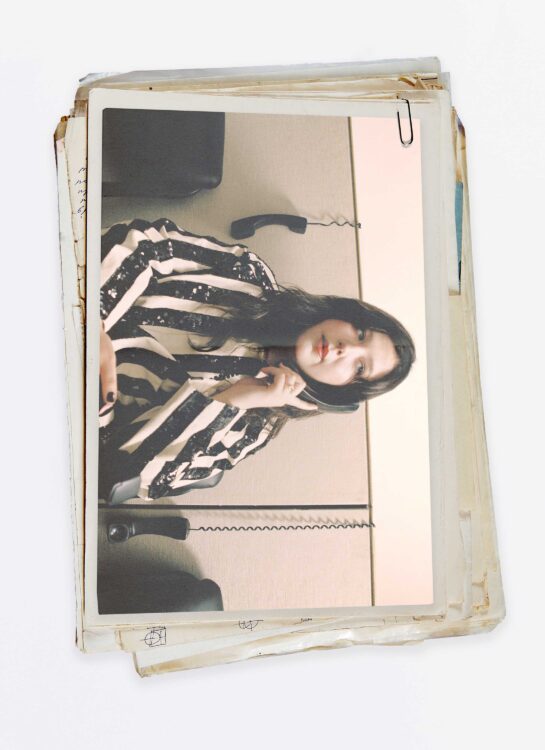- Words Kitty Robson
- Photographer Erin Pederson
- Stylist Ashley Furnival
- Make Up Artist Nick Lennon
- Hair Stylist Gregg Lennon Jr
- On-Set Producer Abby Dergazarian
- 1st Assistant Laura Mohn
- 2nd Assistant Kristina Koseva
- Digital Technician Lindsey Kusterman
- Creative Production Olivia Wright at Studio Notion
Alternative singer-songwriter Lucy Dacus talks devotion to not just the craft, but to the deeper questions of connection, meaning and creating in an ever-complicated world.
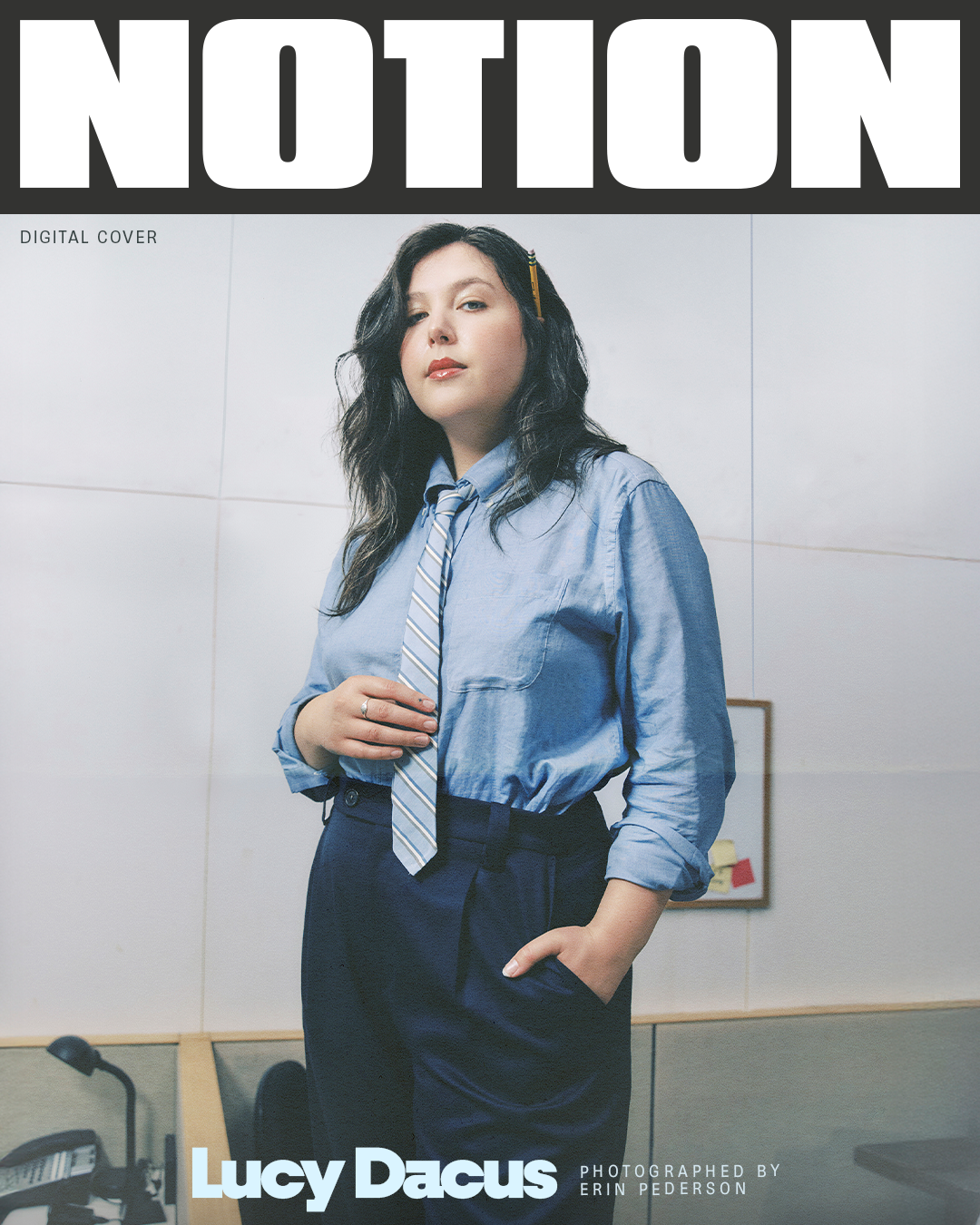
One of music’s most thoughtful and unflinchingly honest voices, Lucy Dacus has built her reputation on the power of her pen and the thoughtfulness of her viewpoint. Releasing perhaps her best project yet this March, Forever Is A Feeling balanced that sharp detail with sweeping emotional resonance, creating a body of work so deeply personal yet profoundly universal.
Since her 2016 debut No Burden, the Richmond-born singer-songwriter has carved out her own space in the world of alternative music, writing songs that grapple with identity, memory, faith, and the shifting weight of intimacy. Her voice – warm, unhurried and edged with quiet conviction – carries lyrics that feel both diaristic and timeless, as if they belong to anyone willing to listen closely. Beyond her solo work, she’s also one third of the supergroup Boygenius alongside Phoebe Bridgers and Julien Baker, a collaboration that has not only expanded her audience but also sharpened her sense of community and shared storytelling.
On Forever Is A Feeling, her fourth solo record, Lucy turns her gaze toward love in all its fleeting, disorienting and intoxicating forms. Produced with Blake Mills, the album is both an exploration of romance’s complexities and, for fans, an almost fan-fiction-worthy glimpse into her real life, released just weeks after she made her relationship with bandmate Julien public. Songs like the intimate ‘Ankles’ and the wistful ‘For Keeps’ unravel desire’s paradox: the simultaneous hunger for closeness and the ache of distance. Elsewhere, the quiet road-trip meditation of the shoegazey ‘Talk’, the climactic yearning of ‘Big Deal’ and the romantic realism of ‘Best Guess’ capture the ways relationships shift and reshape over time. A personal favourite, ‘Limerence,’ exemplifies her incredibly gentle yet pointed lyrical prowess with an almost stream-of-consciousness painful tale of falling out of love. Vulnerable, playful and at times boldly sensual, the album finds Lucy confronting the universal truth she arrived at while writing: that love, in its many forms, and indeed loss, are at the centre of what makes life meaningful.
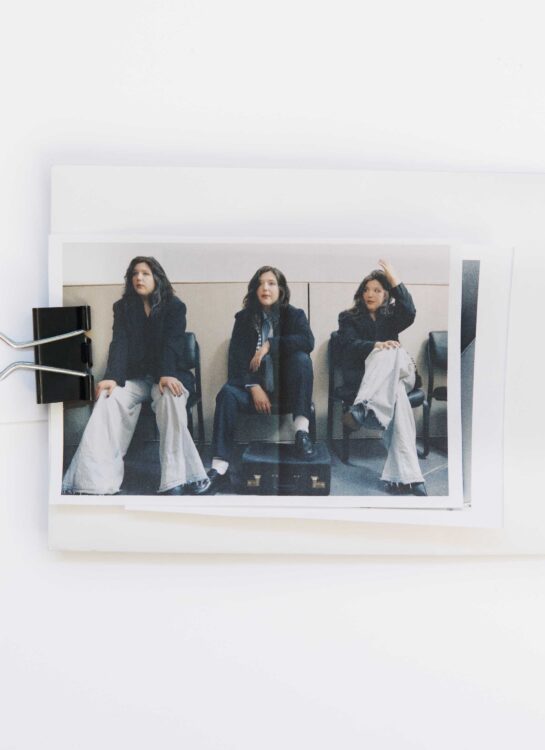
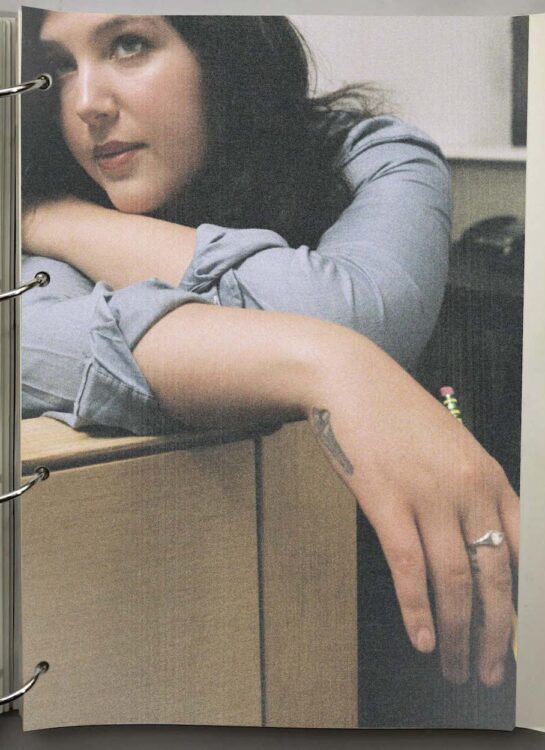
- Shirt APC
Through it all, Lucy Dacus has resisted the lure of artifice. Whether she’s addressing coming-of-age, queerness or the sociopolitical urgencies of the moment, her work invites listeners into a space of radical sincerity. She’s the kind of artist who can confront mortality with a level gaze and, in the same breath, revel in the sweetness of a fleeting moment. It’s this duality – weighty but never heavy-handed – that has made her work so enduring.
Onstage, she has found new ways to turn concerts into spaces of connection and celebration. From the catharsis of hearing crowds sing back her words to the intimacy of officiating marriages mid-set, her shows collapse the distance between artist and audience, transforming performance into communal ritual. For Lucy, that sense of togetherness is not just incidental to music; it’s essential, a counterweight to the isolating forces of modern life.
Creatively, she remains restlessly curious. This record marked a shift in her songwriting, capturing feelings as they unfolded rather than in hindsight. The result is work that feels immediate and urgent, anchored by the awareness that time is fleeting. In our conversation, she speaks candidly about experimenting with process, from the discipline of jotting down fragments in yearly phone notes to the temptation of stripping words away altogether in pursuit of pure sound.
Yet Lucy Dacus’ inspirations extend far beyond the studio. Museums, literature and even the simple joy of cooking have all become new outlets for creative exploration. These detours reveal an artist who is not just documenting her inner world but continually reshaping it, finding fresh ways to stay connected to beauty, meaning and the ordinary pleasures of daily life. For our latest digital cover, Lucy reflects on the themes that continue to shape her music and her life: the exhilaration and authenticity of live performance, the urgency of writing through experience in real time, and the way constraints – or the lack of them – change the creative process. She talks about exploring inspiration beyond music, whether in the intimacy of cooking or the stillness of museums, and about the discipline of capturing fragments of life in her ever-growing collection of notes.
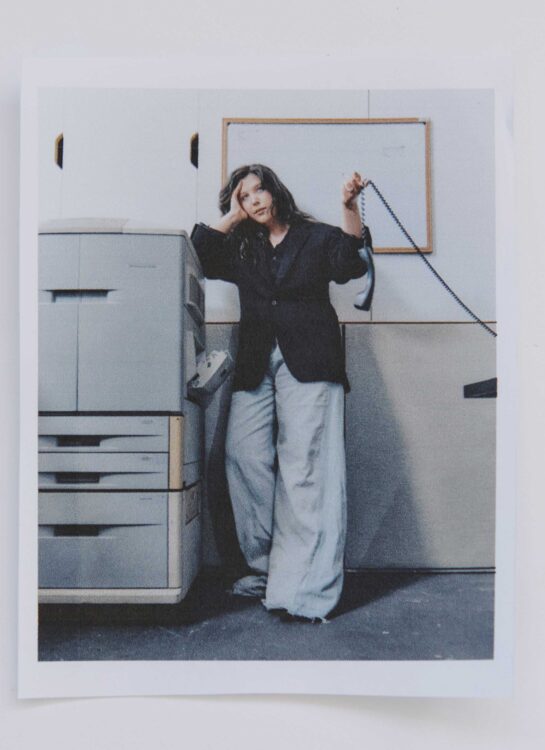
- Blazer, vest & jeans Coach
- Shoes Thom Browne
How are you? How’s tour going?
It’s going great. I’m at home. I’ve been sleeping in, obviously, as I just did. I’ve only been home 3 days, I’ve been touring so much that time at home is scarce, so I really lean into it when I’m here. But touring is so great. It’s my favourite part of the process, just doing the shows and being with my band, it’s like a high every night.
I can imagine it must be such a cathartic experience to share your new music in person. How has it felt to get those live reactions to it?
It’s nice because it can’t be faked, really. I can really discredit any positivity that anyone brings to me. I can be like “oh, you feel like you have to say that because I’m physically in front of you” or “you’re just being nice for the sake of it”, but nobody can really fake singing along. You know, if people went to the trouble to leave their house and buy a ticket it’s easy to accept that everyone in the room is where they want to be, which is kind of as powerful in and of itself, no matter the situation, just being in a group of people where everyone actively wants to be there.
Tell me a bit about how it’s been to marry people on stage?!
It’s been so cool. You know, in the States, I just got this sense many months ago, at the beginning of this presidency, when Trump came for trans rights so immediately and so quickly. I had so many friends who were affected: their IDs and passports were being held up in bureaucracy, so functionally, they weren’t going to be able to leave the country for a long time. I was just like “I don’t know if they’ll stop there” and now it looks like there’s this proposition to diminish the right to gay marriage. The weddings [at my concerts] aren’t just for gay people, but I know that I have a lot of gay fans. I also wanted it to be an opportunity for people, because there’s been all these terrible and tragic deportations via ICE in the US, and just people trying to start a citizenship process. I just felt that it was a nice thing that usually is kind of obscure and expensive to do, and I just thought it’d be nice to do it for free. And it’s so sweet! It’s my favourite part of every show. It’s really deep because the show is one thing, but then there’s all these people having one of the most memorable moments of their life just like right next to me, and I’m very honoured that they want to share that with me.
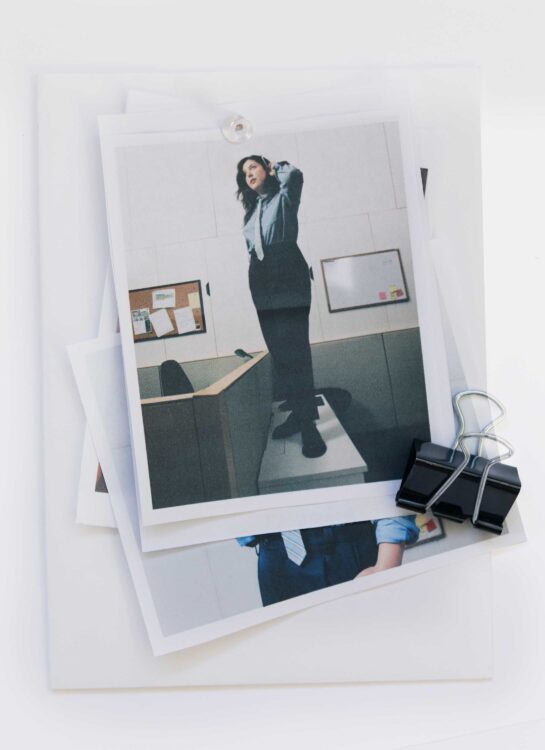
- Jacket, tie & socks Thom Browne
- Shirt, trousers & shoes APC
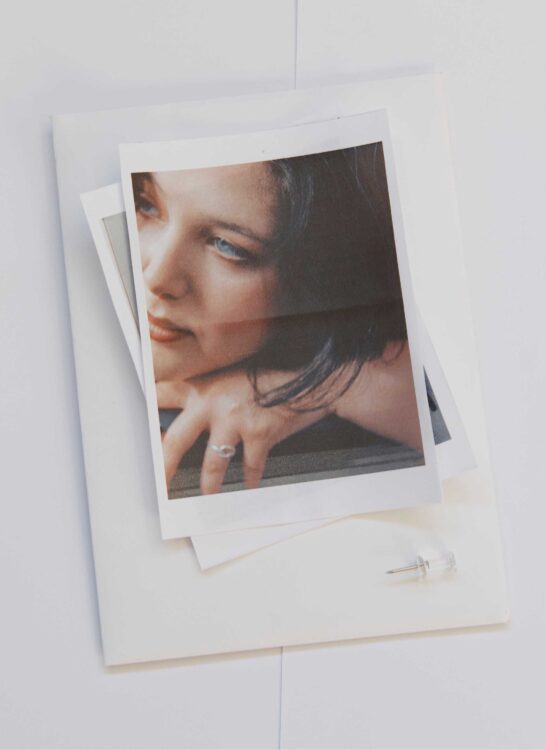
You’ve said Forever Is A Feeling feels like the most ‘you’ of your records so far. Tell me a bit about the experience of laying yourself bare in that way?
I think that historically I’ve written songs way after the fact – realising “hey, I’m older now and I can see this from a different perspective”, and it’s part of processing later in life. Whereas this record, I was processing while things were happening so it feels very current and urgent. I’m really happy I have a document of that time and those changes, even if they were really hard. I don’t know if I would say that I’m a morbid person, but I think about death pretty constantly. Not even really in a sad way, just like when you remember that you’re gonna die, it helps you make better choices for your life. It actually is a very helpful thought for me. Putting out this record, I was like “I want to have evidence of this feeling”. I know that one day I’ll be old and this will probably pass, like everything does in one way or another. I’m personally happy that I get to have this document of how I have felt.
How did it feel to share that with the world? I can imagine it’s cathartic but scary too.
I think it’s scary because people have more of a parasocial relationship with me now. It felt before this record that I could write about anything and it was given the grace of “oh, this could be about anyone”. Now it feels like people are more interested in getting specific and I don’t love that, because ideally with a song, it doesn’t actually matter who it’s about. It should function in another person’s life with them subbing in the people of their own experience. That’s how I relate to music: I hear something from 70 years ago, and I’ll put myself into it and still feel that it’s profound and recognise myself and my friends and the people I love in it. But that has been different this time around.
How has it made you think about how you would approach that in the future? Does it put you off?
Frankly, I’ve been toying with the idea of making some music without any lyrics at all. But no promises that I’ll do that or if I do, that I’ll share it. I would just be for my own benefit. I think reconnecting with music without any story would be nice for me.
That’s an interesting way to look at it. Is there a medium that you’d be interested in exploring that with? Like a score or something maybe? That could be so cool.
That would be really cool. I think I have some learning to do. I want to learn softwares and a few more instruments and become a little more self-sufficient. I play guitar by myself, but that’s about as far as I can go by myself before I have to bring in friends to help. I think I need to expand the amount of time that I can be alone with the music.
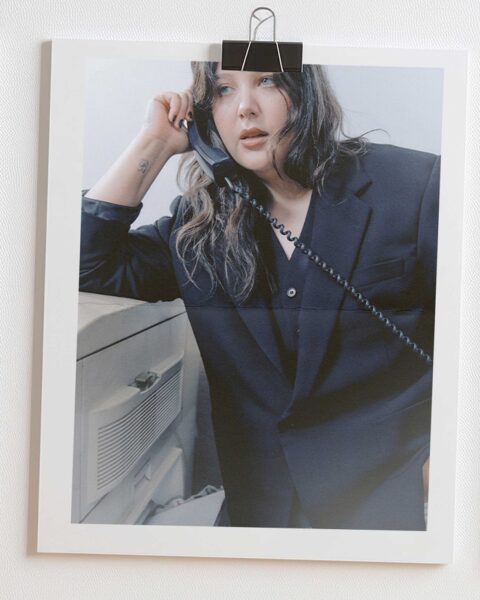
Where else do you feel like this album’s led you to creatively?
It’s funny because it’s making me want to turn to other types of creativity that’s not music. A lot of the ‘world’ of this record is based on art history and fine art, so I feel really inspired by that. And honestly: cooking. I’ve never been a huge cook, but I’ve been cooking recently, and that feels really tangibly creative in a way that I didn’t really expect.
What have you been cooking?
I love to grab a bunch of different vegetables and marinades, and I’ll make a big pot of sushi rice and then make something like salmon or I’ll make ramen eggs. You just put soft boiled eggs in a big plastic bag with soy sauce and mirin and a little bit of sugar overnight, and they’re just like the ones from the restaurant. They’re so good.
I love how your music finds joy and beauty in the ordinary. Do you find yourself in daily life scribbling that stuff down? Do you consciously zoom in on the details in that way?
Whenever a detail strikes me, I have a note in my phone that I put everything in per year. I have a different one for every calendar year. They range from just one word, like “I really like this word” to an entire verse, or just like “write a song about this”. Just observations that might lead to a concise lyric sometime. If I hadn’t figured out that system, I don’t know how I would even organise to write songs so it’s pretty consistent. There’s definitely some days where I’ll put in 4 entries and then maybe 4 weeks where I don’t touch it, but they always get really long by the end of the year, which is nice.
That would be a really interesting project to conceptualise!
I’ve thought about really far down the line, it would be cool to just publish them all and be like, “OK, if anybody wants to take this idea, you can”. But for now I’m taking my own ideas. I’ll go back to 2021 – ’Various Bits’ is what I call them – and I’ll just scroll and stop, and land on something and see if it fits whatever I’m working on. I don’t believe in killing your darlings, I think you just leave your darling in a cave and come back later.
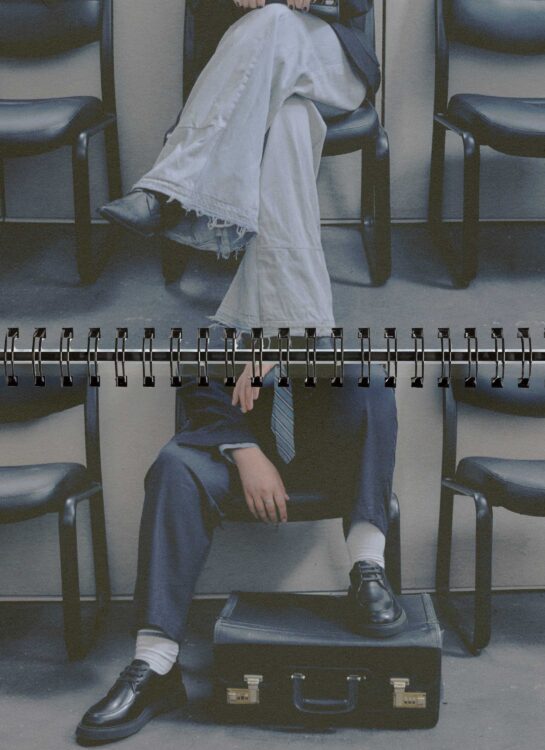
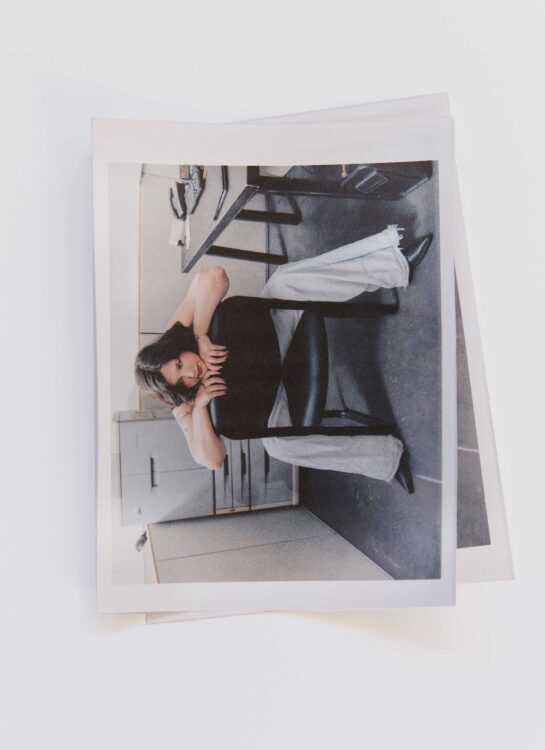
You’ve said with this record you were quite spoilt for time. How does that freedom shift the way your process and perspective?
I didn’t really like having limitless time. My first record took a day, my second record took about a week, and the third one took about 3 weeks, all in all. The constraints really made it feel like that the first impulse was often respected. There wasn’t a lot of belabouring, and if the first impulse wasn’t right, the first thing that felt right would be like, “OK, that works, let’s move on”, and just getting to push through stuff made it happen. Whereas with so much time, I was just like, “is this right? Do I hear this?”. Maybe ultimately I got to explore a little bit more and do some things I hadn’t done before, but the experience of working fast is more fun to me.
Where else do you feel that you look to now for inspiration?
I feel like books tend to inspire me more than anything. Whenever I’m reading a certain author, I’ll notice that my journaling takes on their tone. I’m reading Henry Miller right now, and I feel like his way of speech is infecting my way of speech. I like to read [the work of] writers that have aspirational language or the way that they think. With movies and art, I’ve been going to a ton of museums while on tour. It used to be that I would think of a museum and be like “OK, let’s see how quickly I can see everything in here.” But recently, I’ve just been walking around until something really impacts me and then I’ll just sit with it for a really long time and that feels really good to do.
Do you find it lingers and stays with you in that way?
Yeah, I think you can kind of compare it to scrolling. When you go through a museum and you don’t spend time on anything, how much of it do you really remember? It’s more of just a way to spend your time than like an impactful experience. So to really focus, a few minutes in, you start to notice things that you just wouldn’t have walking by, whether it’s physical and has to do with the actual work or just the connections you’re making about the subject matter. It’s very rewarding.
What do you feel like you’ve been learning recently on these trips and tours?
That’s a good question. I guess the ongoing learning of the people that I love. When I was doing more Boygenius stuff, I wasn’t on tour with my band. So when I have free time, I’ll often just try to hang out with some combination of the band or crew and catch up on their lives and see where they’re at. That’s an ongoing learning, just staying in touch with people. I have been reading some books about the climate crisis and how to resist and subsist and survive: looking for solutions to an impossible problem. That is definitely inspiring to see people who have figured out sustainable ways of living and very generous, interconnected modes of living, and wondering if I need to change everything about my life.
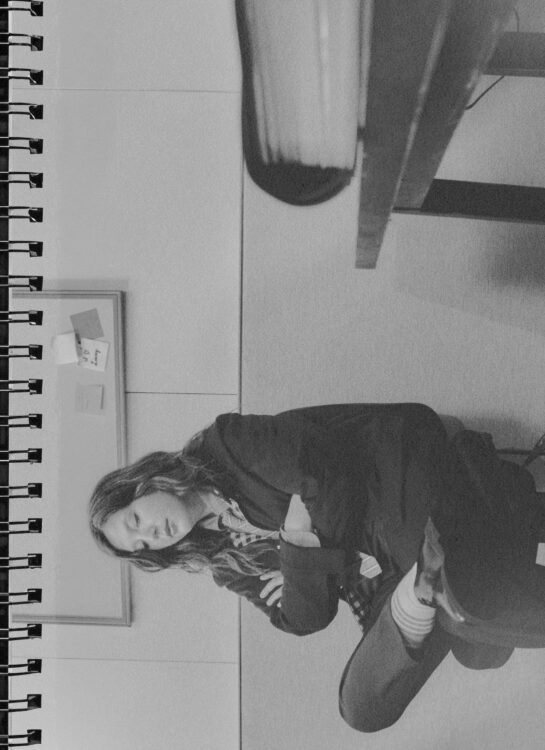
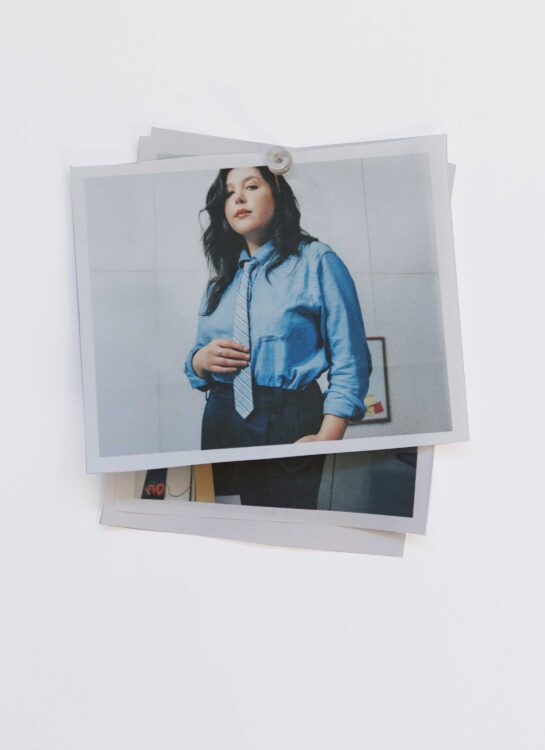
How does it feel right now to be making music in the world right now?
I just feel really grateful to have a job that feels positive. When I talk to friends, a lot of people have jobs that they hate or that they don’t even feel morally attached to. At worst, they have jobs that they abhor and know are bad, just because it’s the job that they were able to get and they don’t know how else to meet their needs. I think that everything is urging people to not isolate and distrust each other, and I do think there’s just a biological imperative to being in a room with a bunch of people in a positive way, like at a concert or anything like it. It keeps you connected and it keeps you thinking that you’re able to exist with people, and that leaving your house is possible and fun and rewarding. I’m very grateful to be convinced that there’s a positive impact to it. This job – not even just me, just in general – I stand by what music can do.
How has it felt now that you’re touring solo again without Boygenius?
It is a little bit lonelier. I just got to hear from them every day: their thoughts and observations and talk about staying in touch and learning consistently. I just felt really in touch and like a little hive mind-y. All of our brains were working on the same themes, so the conversations got pretty deep. That still happens, but we have to pick it up every so often whenever we hang out. On stage, at first I was looking around on either side like “where are they?”. But, luckily my band are my very close friends too, so they may not be in the photos and their names may not be the ones that the fan base has cast as characters. But to me, they are equally a comfort, and have a loving atmosphere, so that’s lucky.
How do you feel like your relationship with your voice as a solo artist has changed?
I think I’ve evolved personally over the time with Boygenius. A lot of things have changed through that. I’ve moved for one, I’ve always lived in group houses and [now] my life is a lot more quiet and personal. I feel like I get more introspective time and that there’s this thing about once you feel safe that your backlog of trauma comes up. I have had – luckily – the time to process some of that, and it’s not easy. But I can tell that it is gonna really improve my whole life to have spent some time in the quiet to heal.
How do you feel now moving forward, where do you feel like you want to head next?
I guess I don’t know yet and I’ll probably just find out after the songs are written. I don’t really plan what happens next, I just have to find out along with everyone else.


